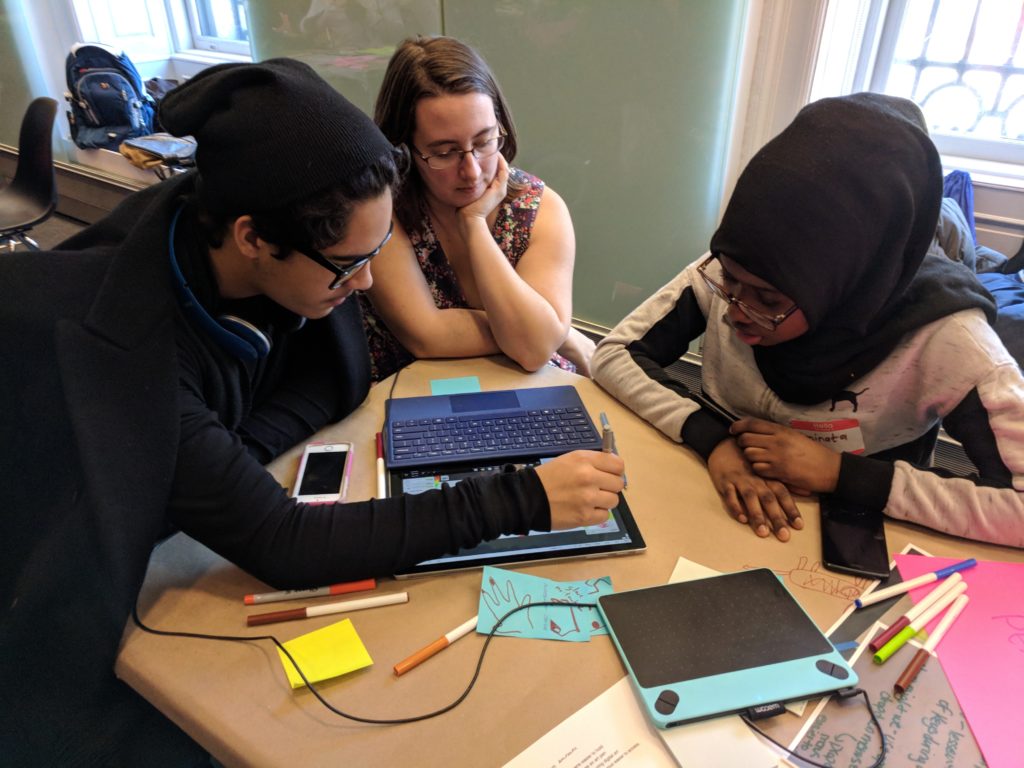How Can We Harness the Power of Tech?
This blog is the first in a series exploring our evolving thinking on the relationships between technology and society. We look forward to learning more about this emerging topic, and to sharing what we learn along the way.
Picture a typical weekday. If you’re anything like us, you check your phone within a few minutes of waking up. You’ve scrolled through Instagram or Facebook by the time you’ve had your morning coffee. You read an article or two on your way to work, where you’ll spend seven or eight hours on your laptop. You’ll message friends and family throughout the day, and when you get home you’ll look forward to winding down with an episode of your favorite show on Netflix (for us, that’s currently the Great British Baking Show).
It’s undeniable that technology is all around us. But the impact of that technology — how it’s affecting individual people and our society at large — is far harder to describe.
We think that it’s important to build positive and productive relationships with the technology we use every day. But how? And what does a positive, productive relationship with technology even look like?
It’s questions like these that inspired us to launch our Tech and Society program area, a new funding opportunity focused on youth voice, and a year-long design project to better define and understand this space. We’ve already done several months of research, partnering with great minds and inspiring organizations eager to learn more about this emerging issue. We’re excited to share what we’ve discovered so far.

We first dipped our toes into this issue area about two years ago. After eight years funding social and emotional learning and digital learning, we began to wonder how those two areas might intersect. How is technology influencing our relationships and individual and collective well-being? And how can people — especially young people — engage more thoughtfully with the technology that’s all around us?
In late 2018, we launched a partnership with Chicago Ideas designed explicitly to explore this space. Our collaboration kicked off with a series of focus groups with Chicago Ideas’ youth ambassadors. We asked these teenagers about various forms of digital citizenship, such as online privacy, freedom of speech, and critical consumption. Two things quickly became clear: 1) kids think about these concepts every day, and 2) digital citizenship only paints a partial picture of teens’ online lives.

Further work in this space confirmed these hypotheses. A second partnership with DoSomething.org layered in the concepts of youth voice and agency, and the next phase of our work with Chicago Ideas led to the development of a set of resources — including one focused on digital ethics — for young people seeking to engage more thoughtfully with online life.
The more we engaged with this space, the more complex we found it…. and the harder it became to define. We talked to kids, parents, nonprofit leaders, and other funders; everyone was interested in this issue, but nobody seemed to know quite what to call it or how to address it. Terms like digital citizenship, digital well-being, and screen time circled around the larger topic that interested us, but none of them fit quite right. We wanted to explore how human issues like identity, mental health, personal relationships, and many more were affected when filtered through the lens of technology. It’s a massive issue that we know far too little about, and it grows more urgent with every new advancement.
So we brought in some help. We partnered with a Chicago-based design thinking firm to help build a year-long project to convene the best and brightest minds in this space. Our goal was to give this issue a clear definition and framework, bring together the great thinkers already doing brilliant work, and build a movement to make tech work better for all of us.
In our next blog post in this series, we’ll share what we’ve learned from this process so far. Stay tuned!
Photos © Chicago Public Library, Digital Harbor, and Dreamyard / David Flores
